ENERGY AND THE CHALLENGE OF SUSTAINABILITYBrynhildur Davidsdottir University
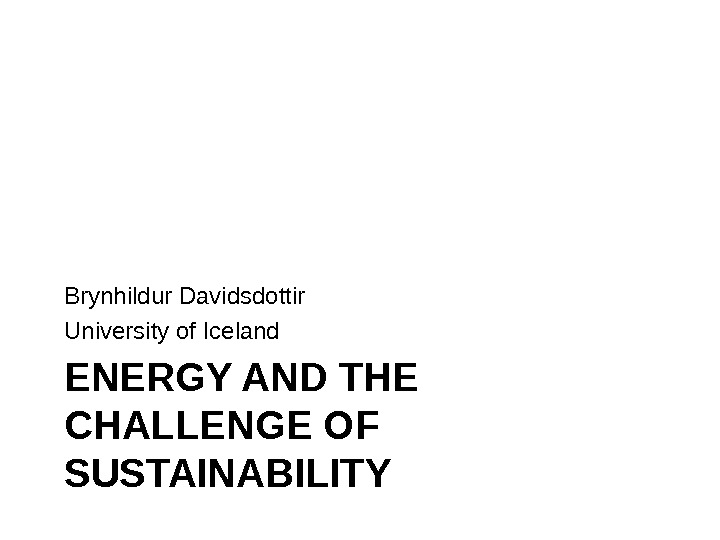
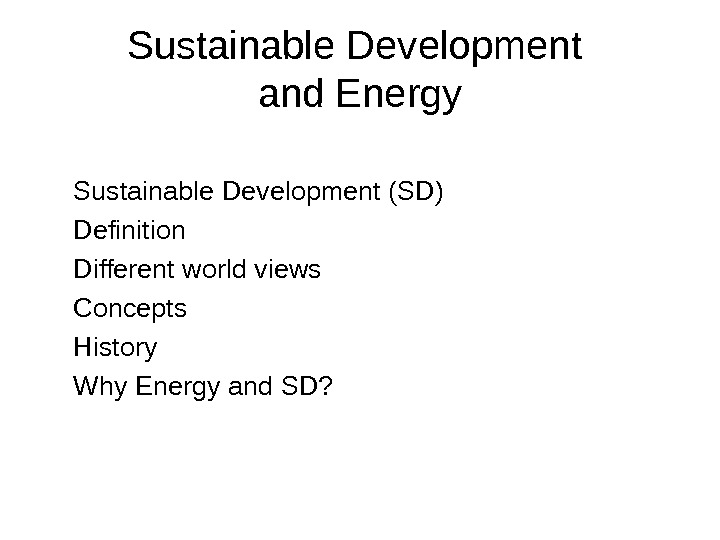
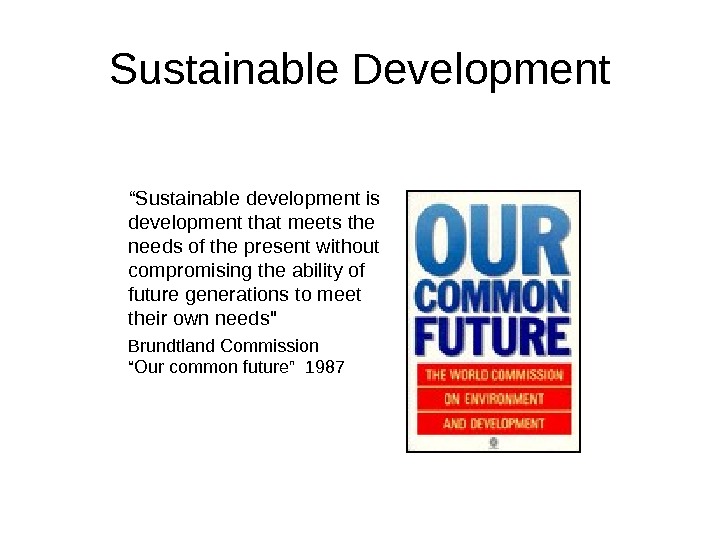
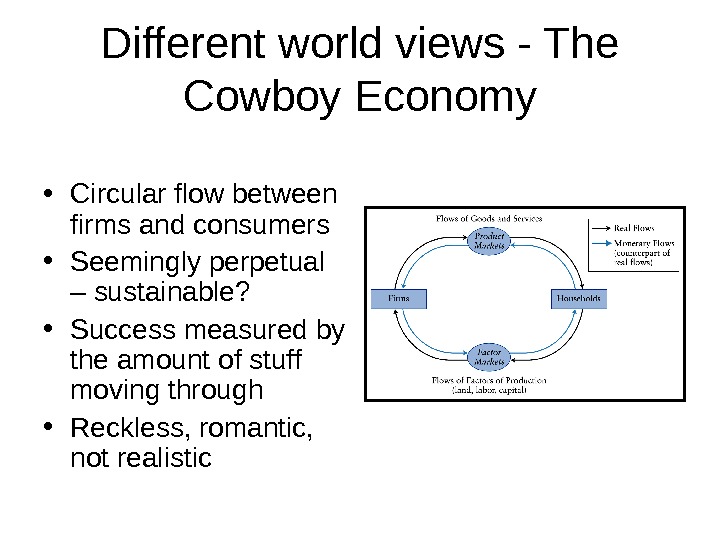

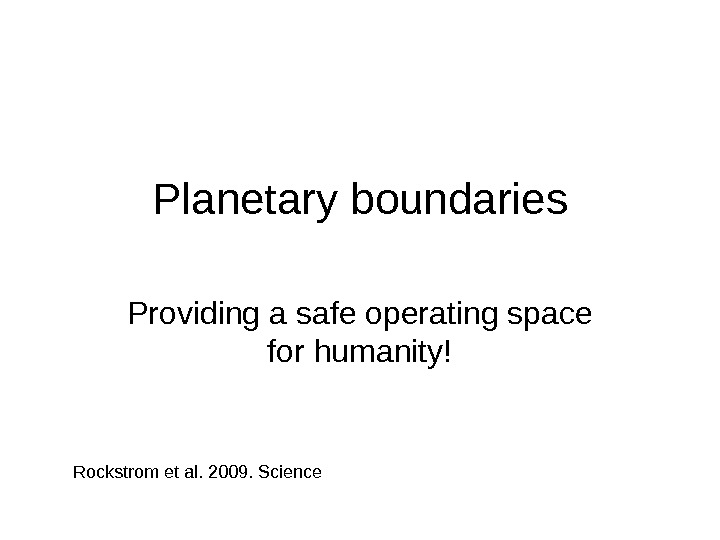

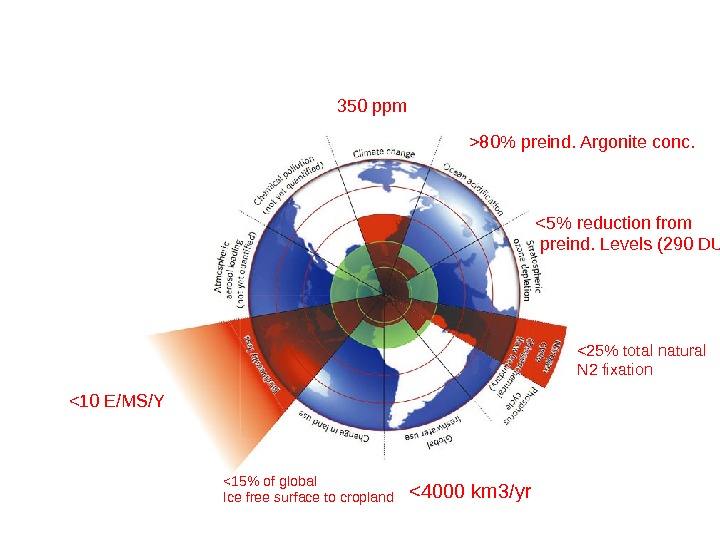
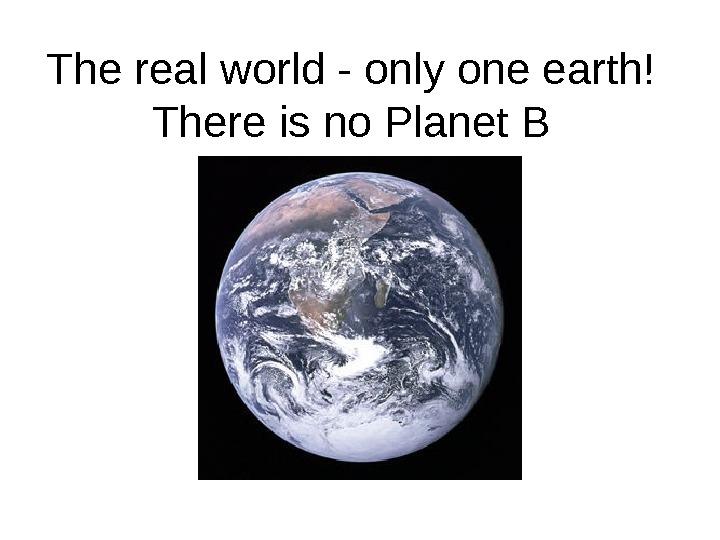
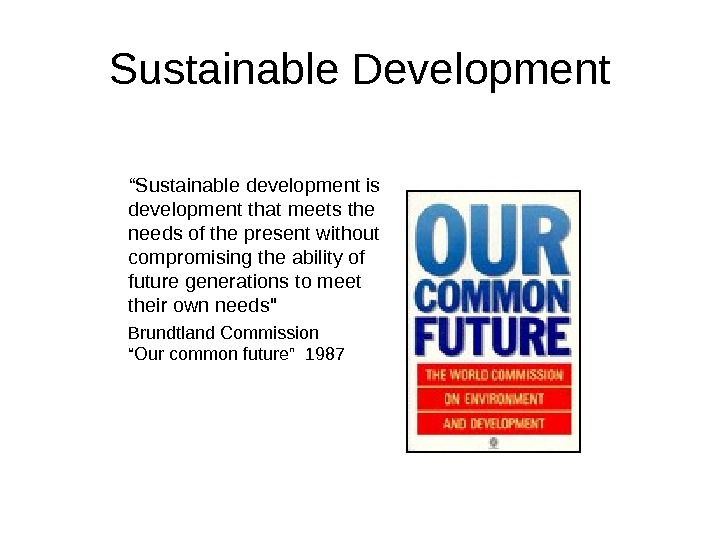
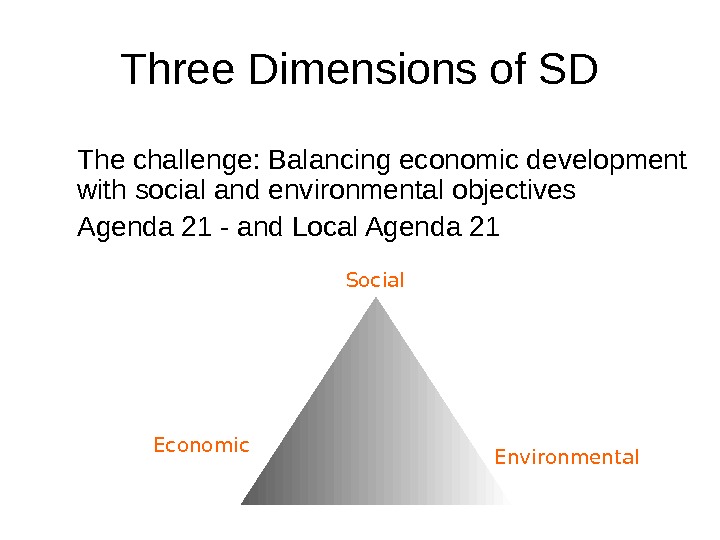
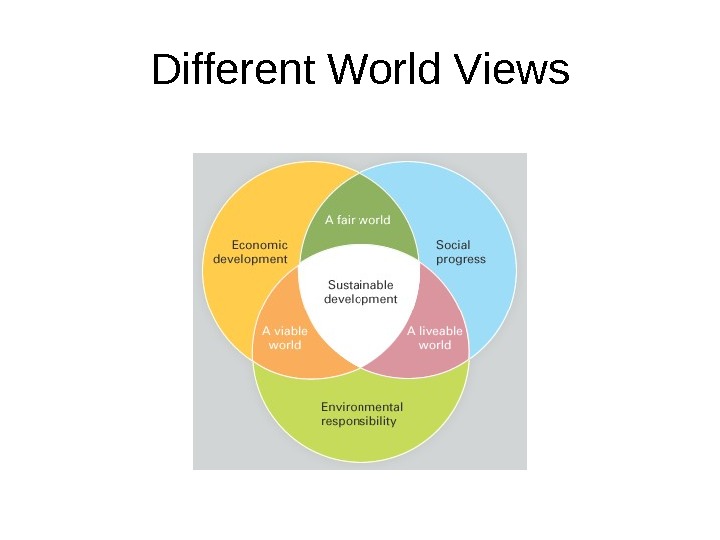
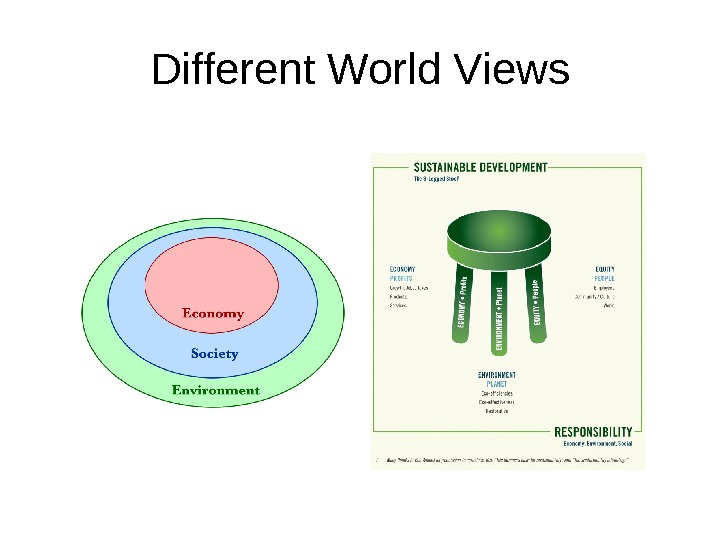
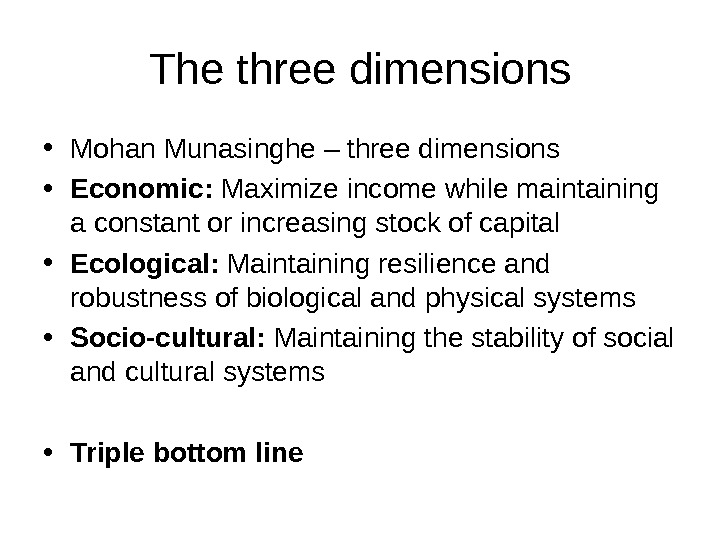
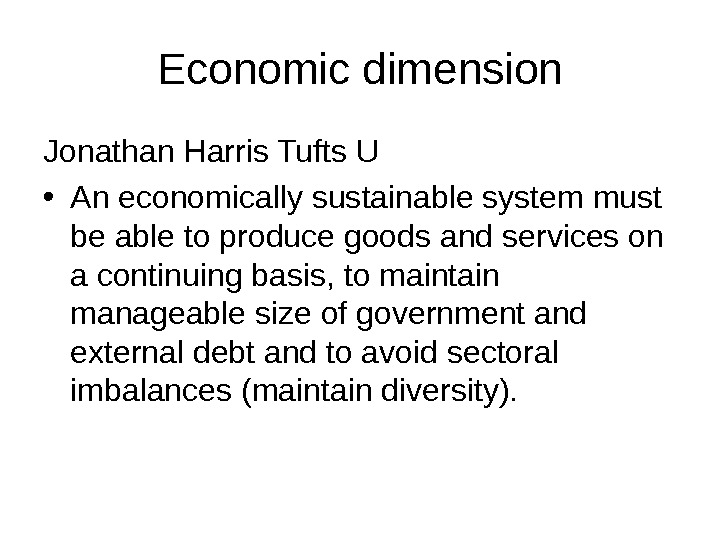
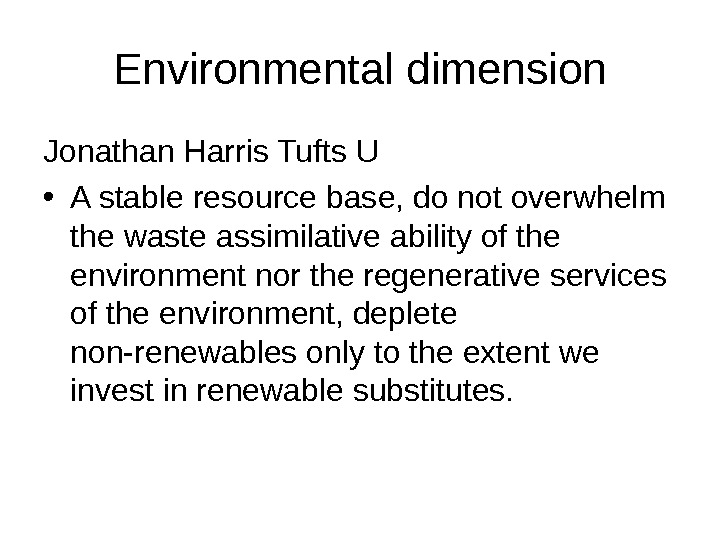
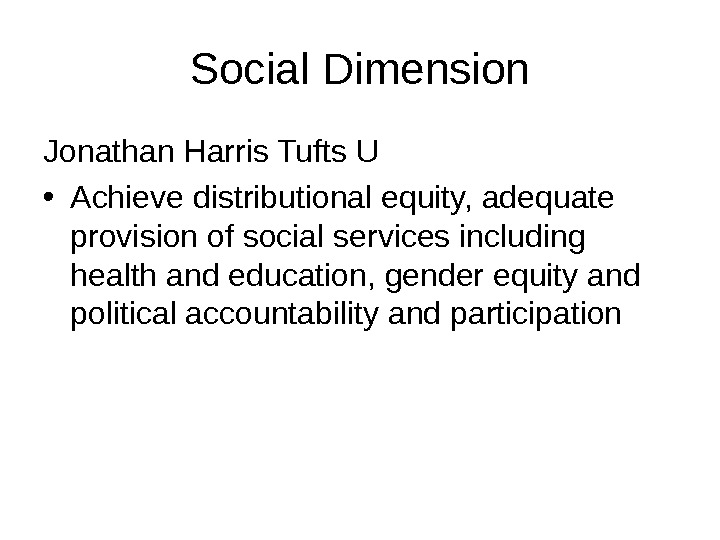
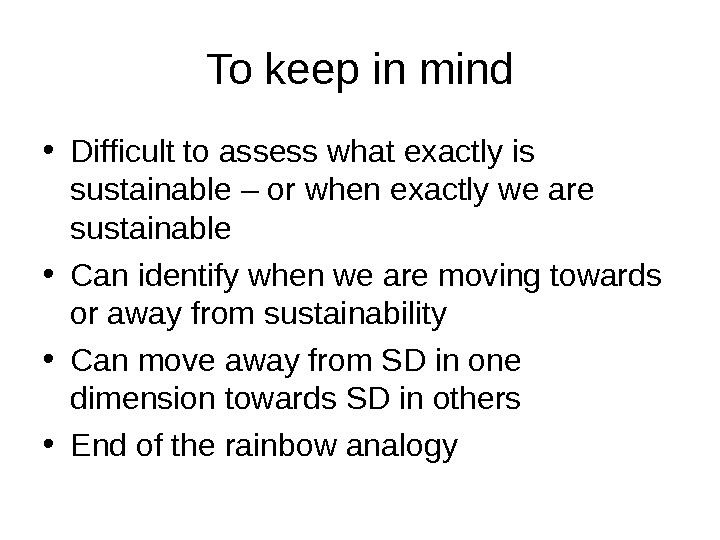
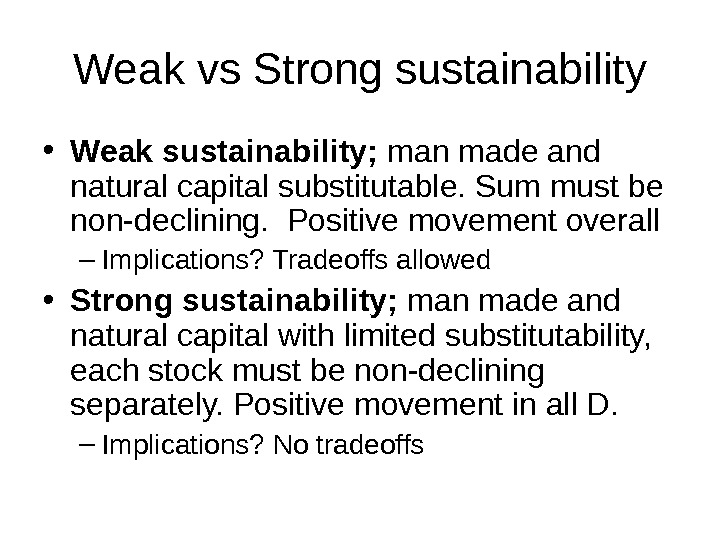
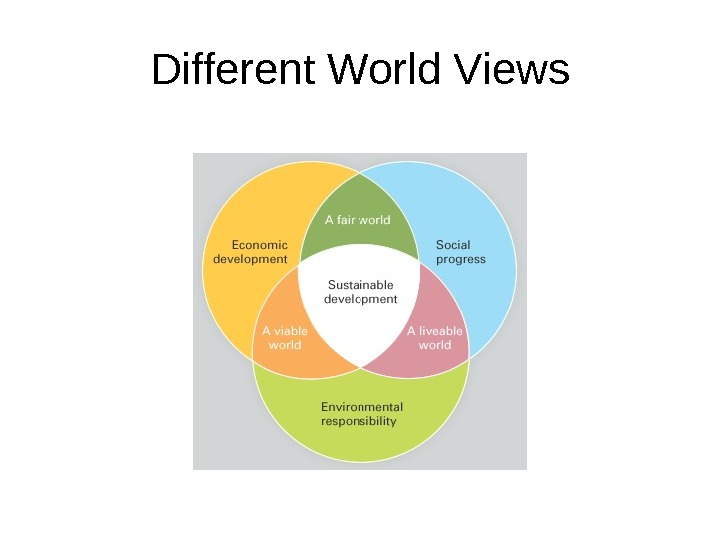

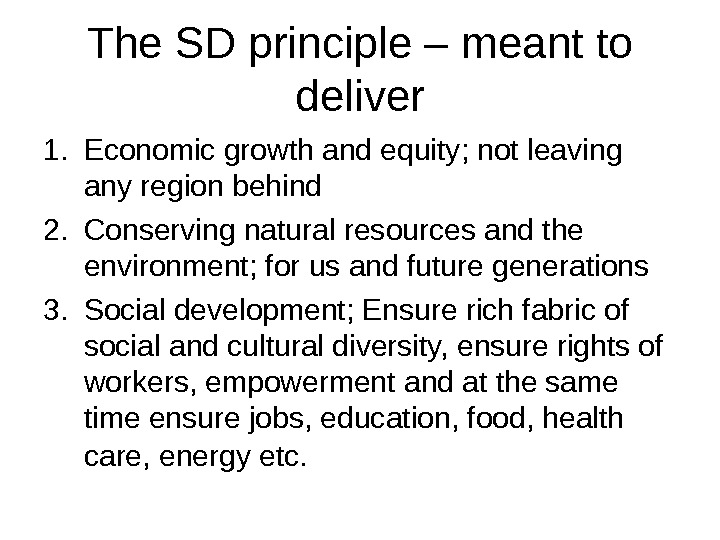
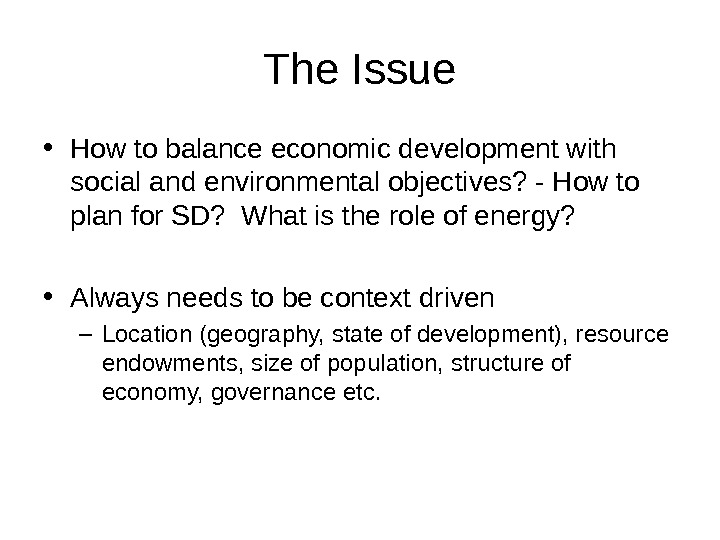
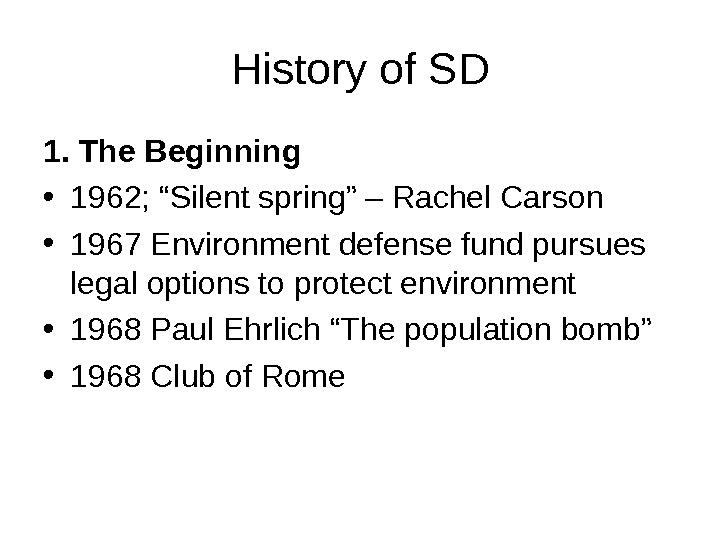

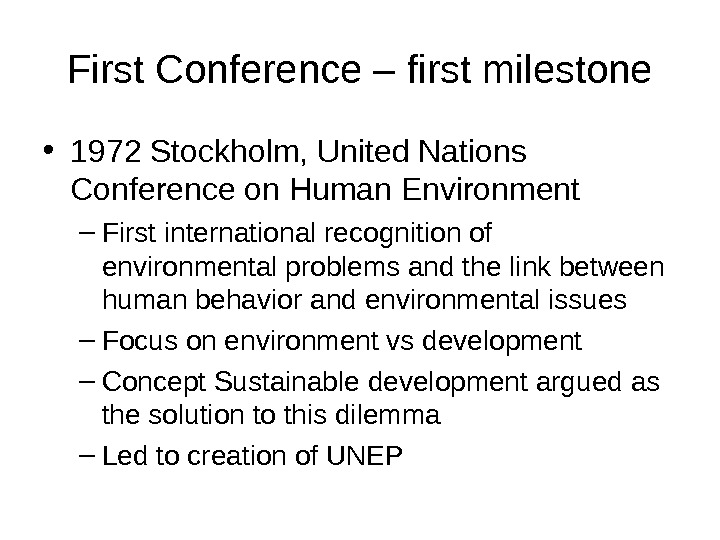
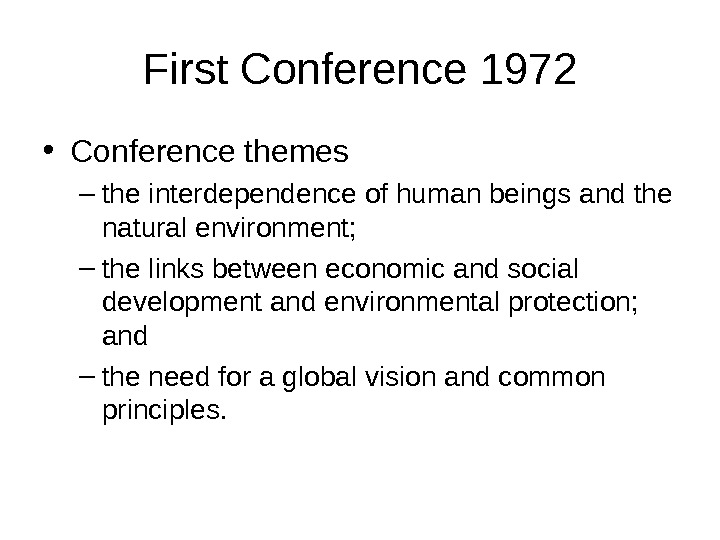

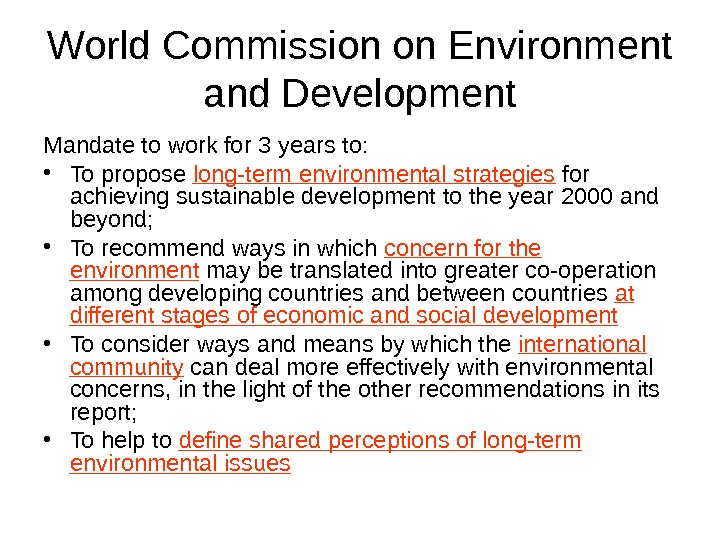

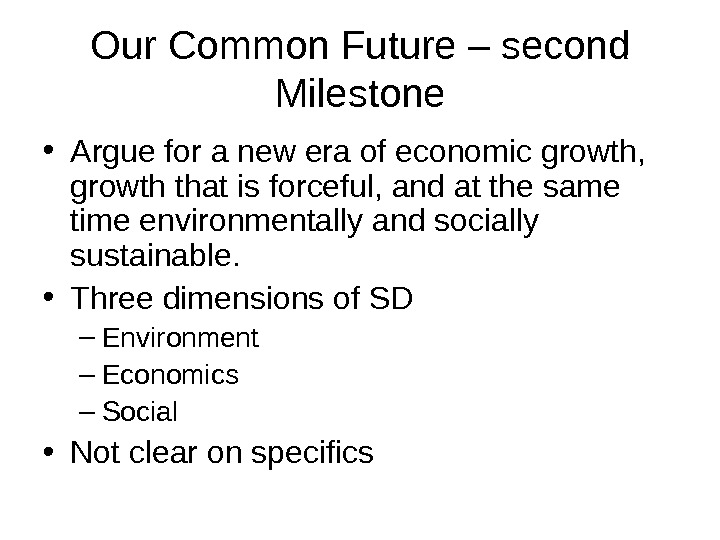
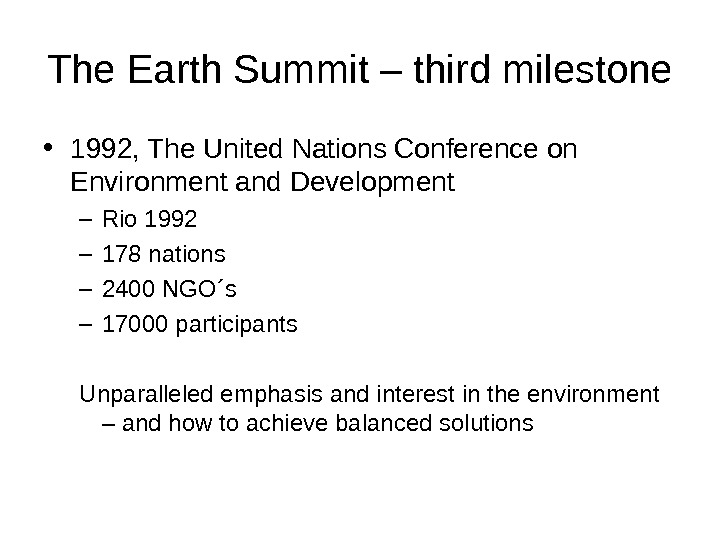
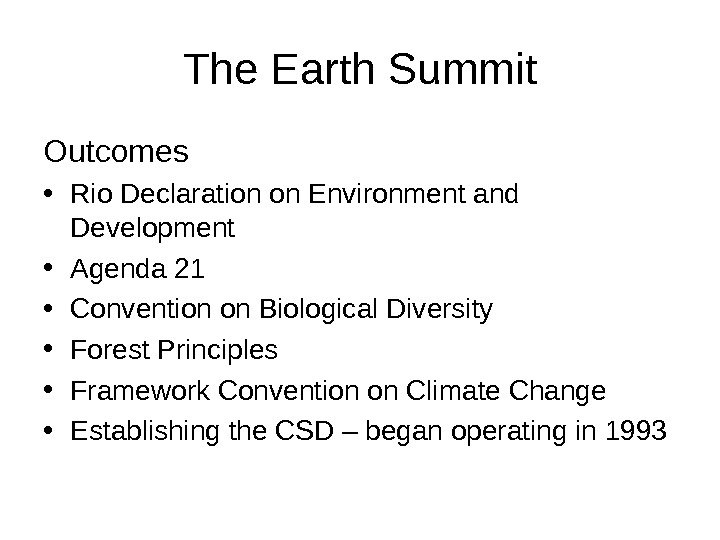
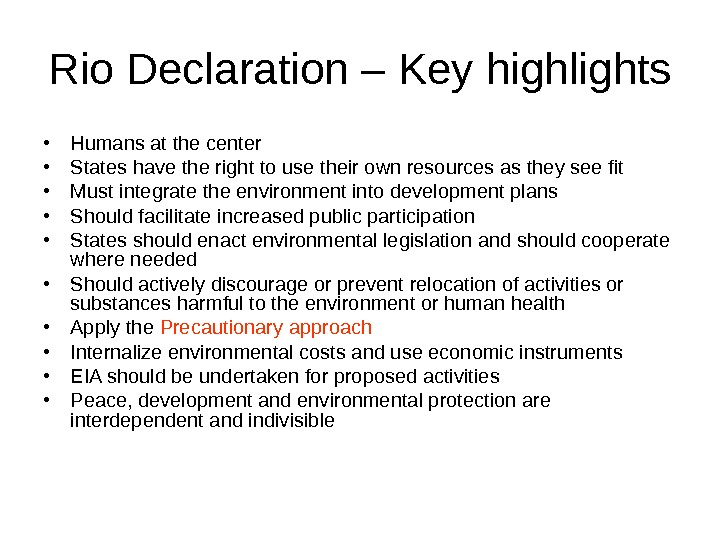
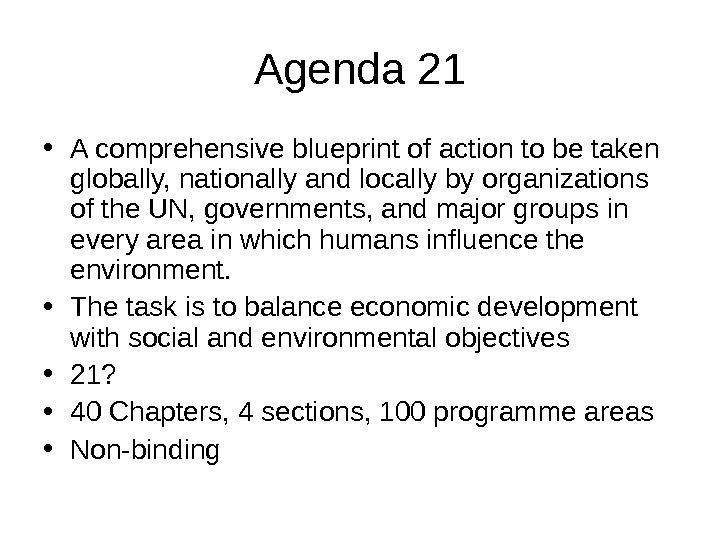

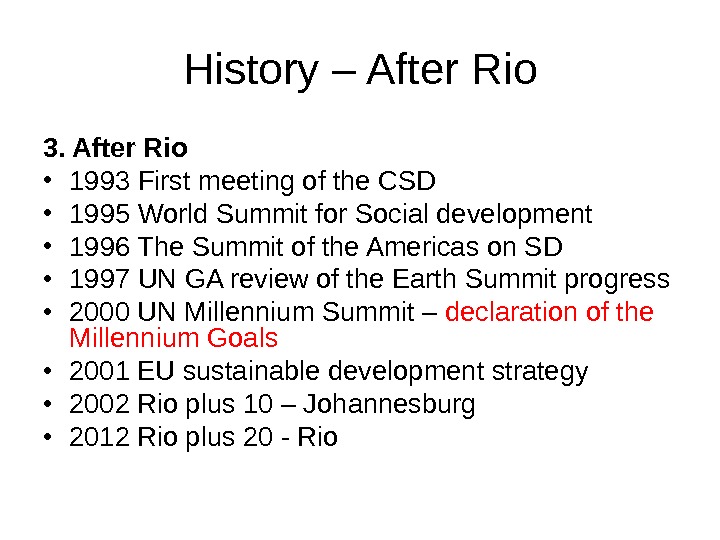
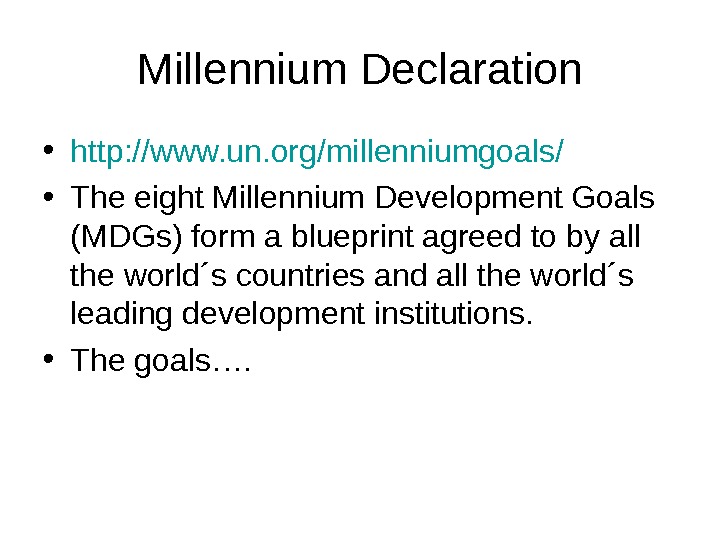
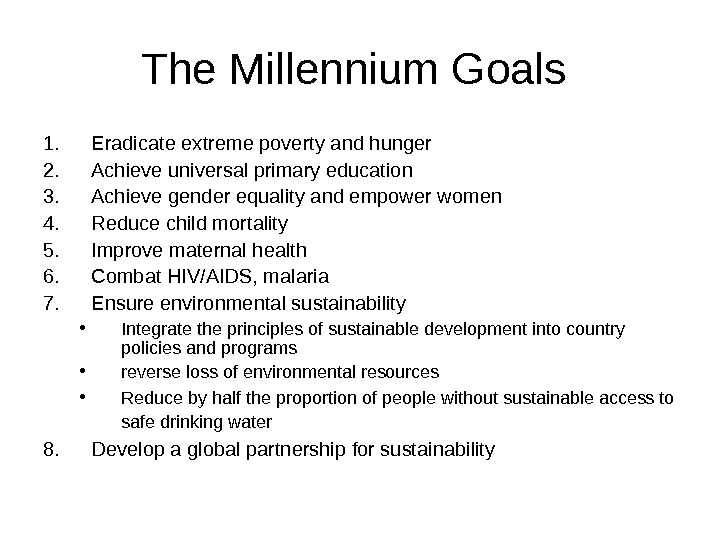
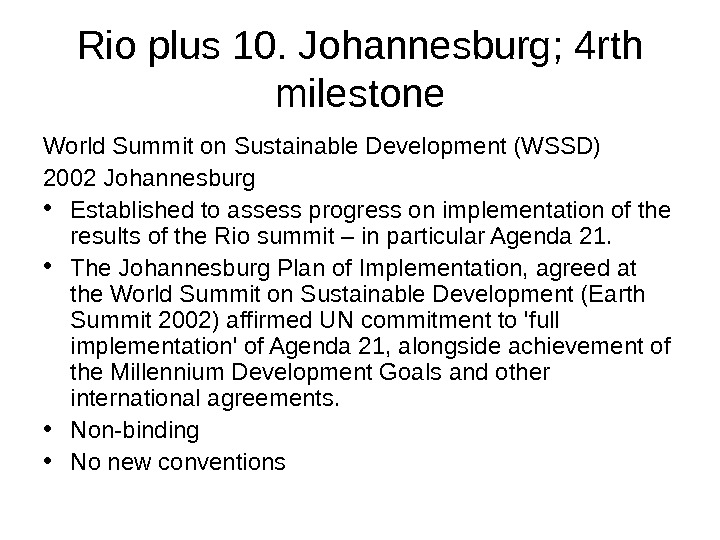
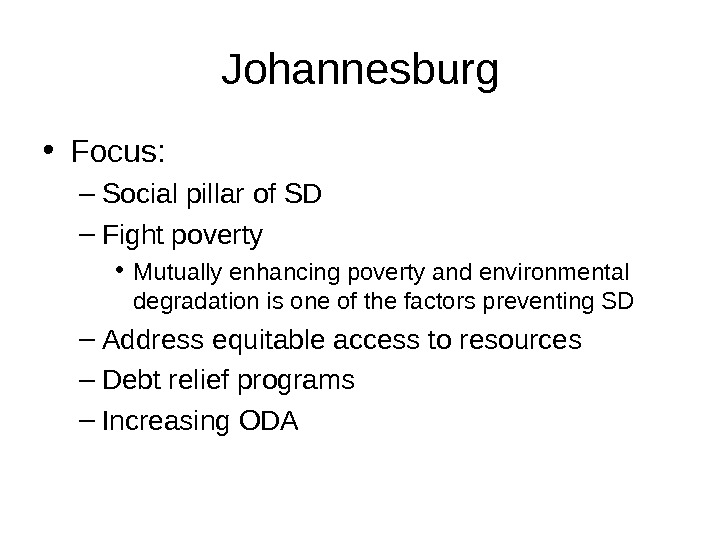
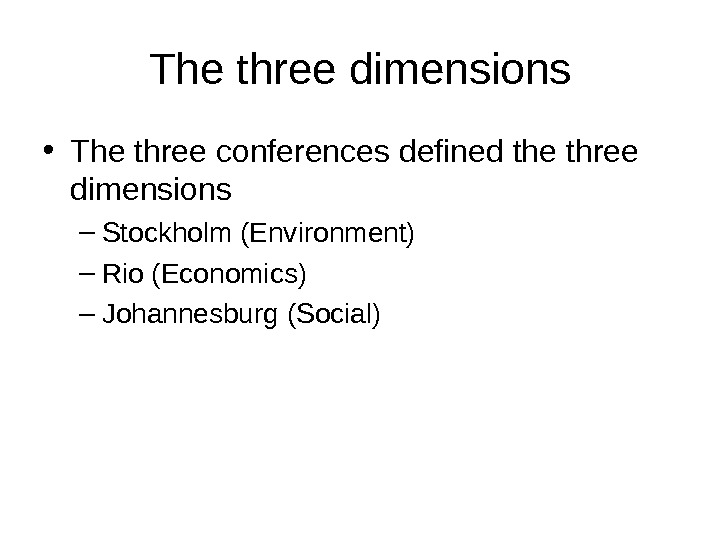
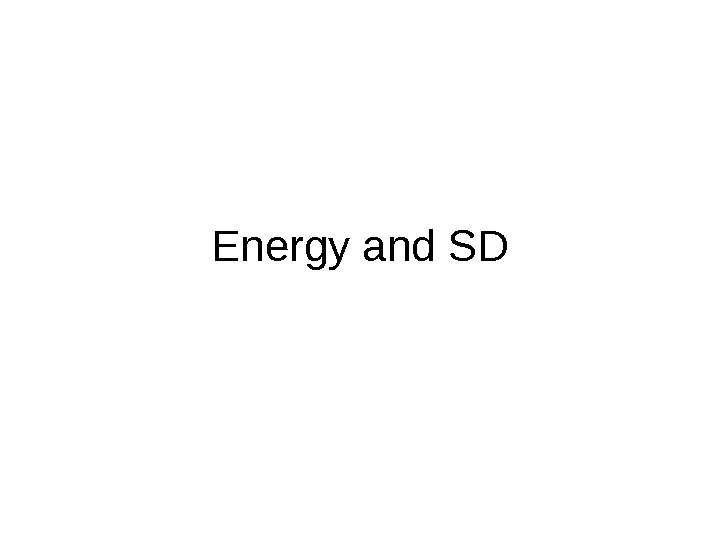
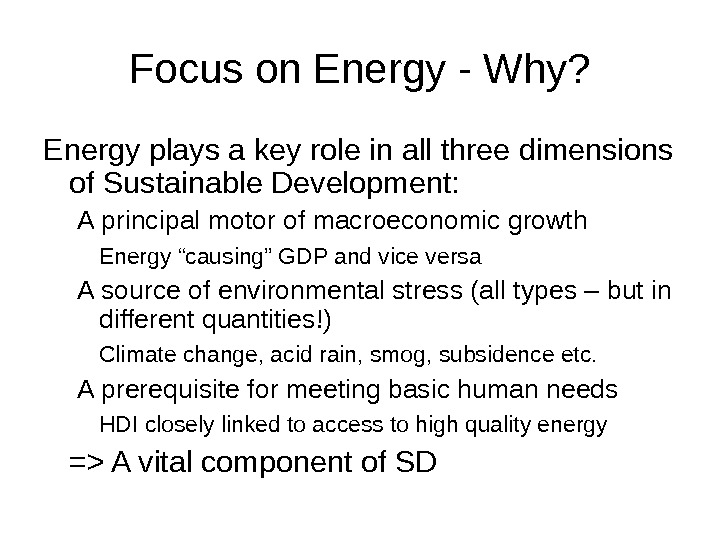
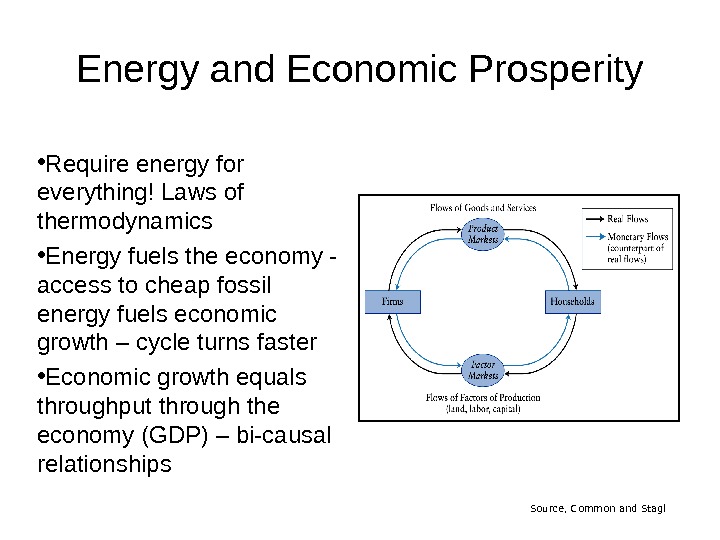
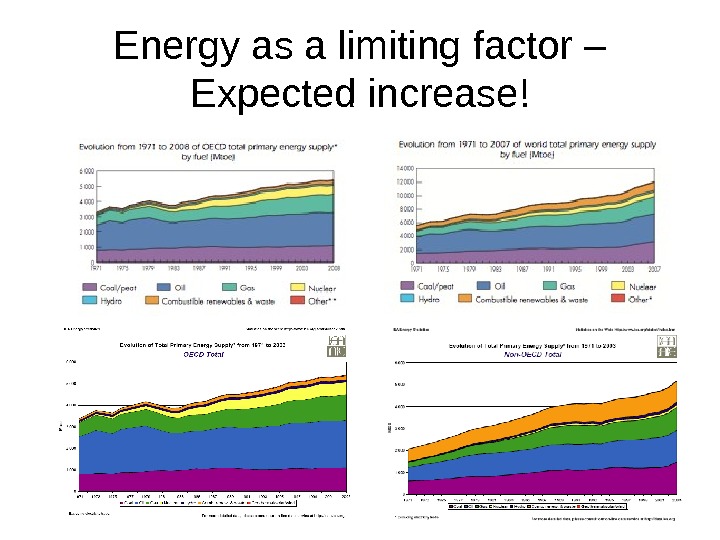

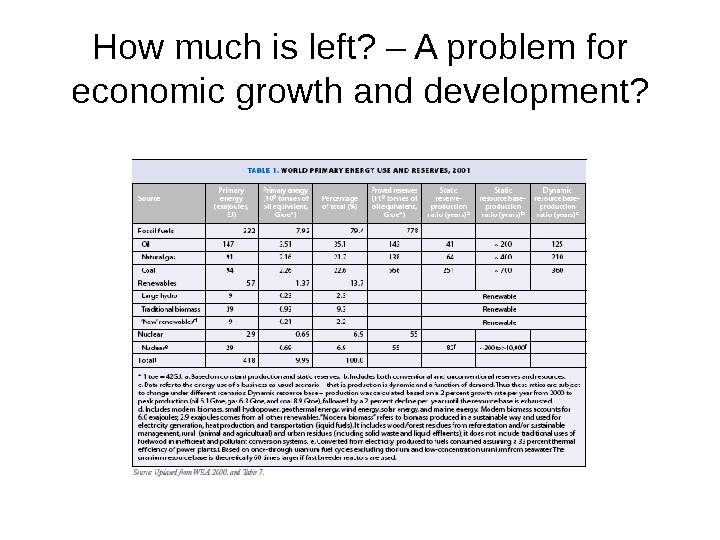
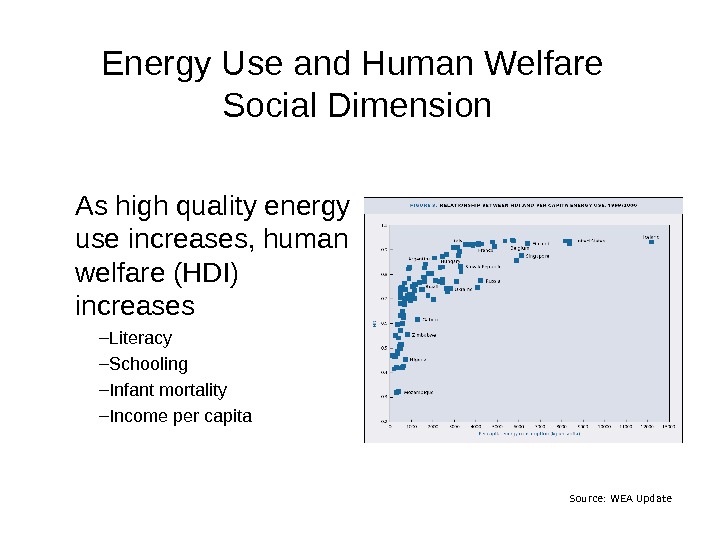
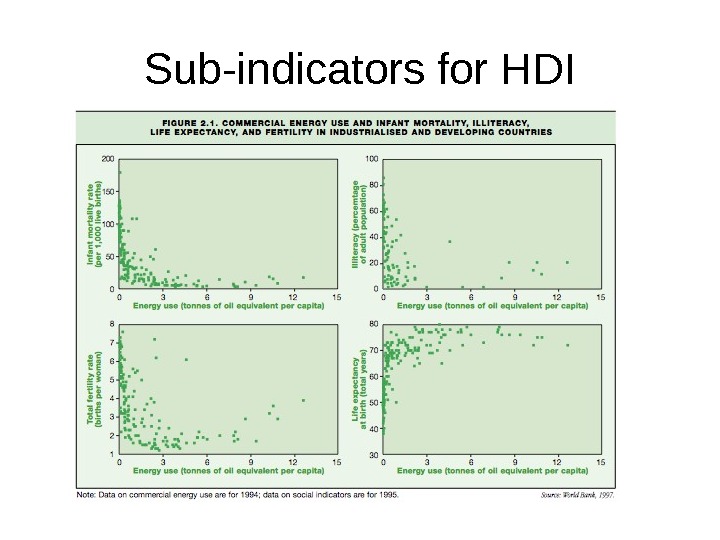
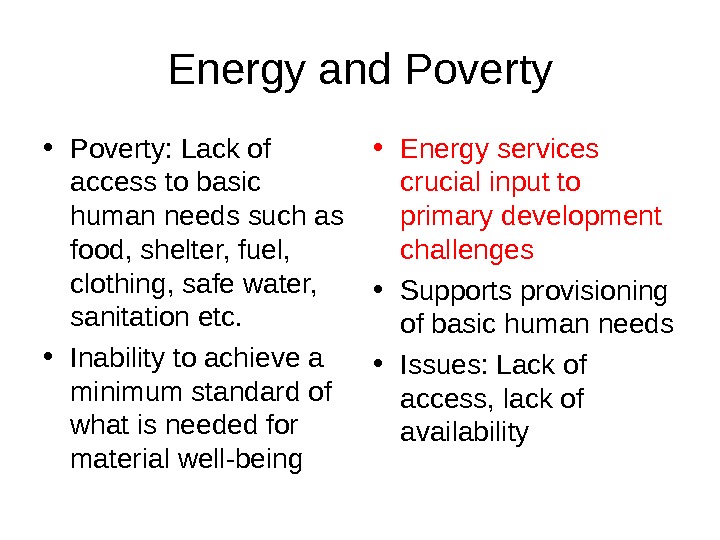
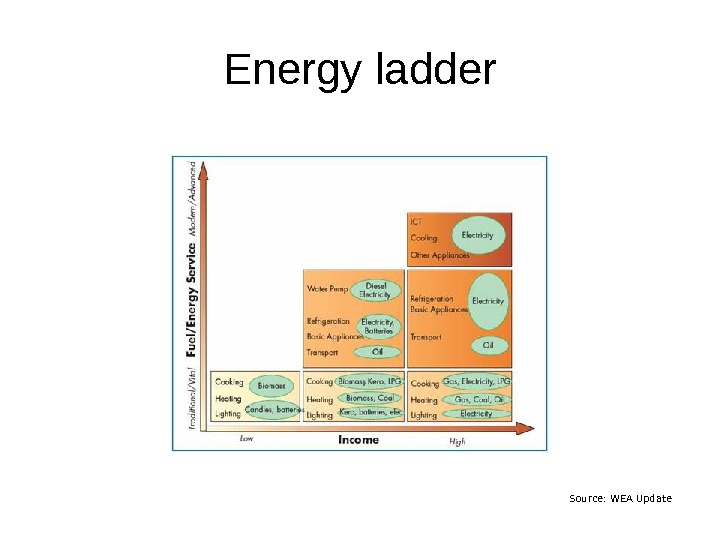
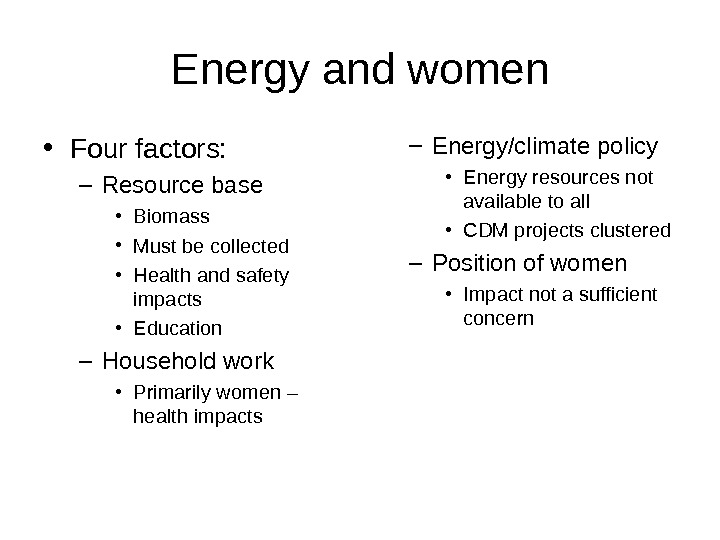
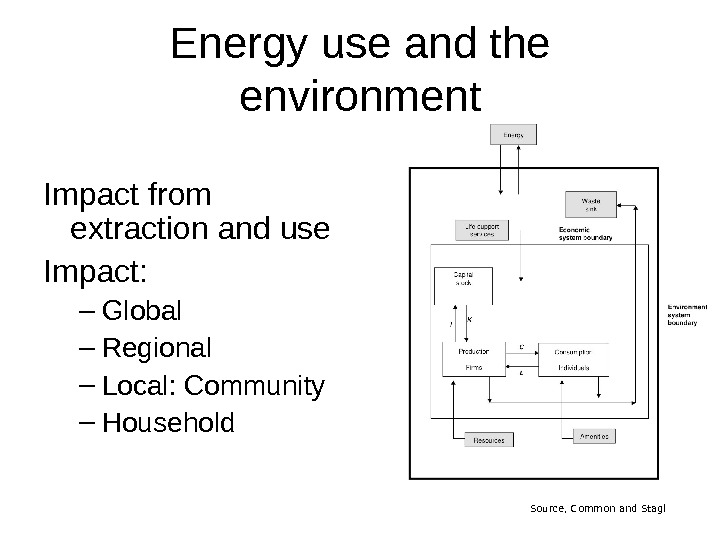
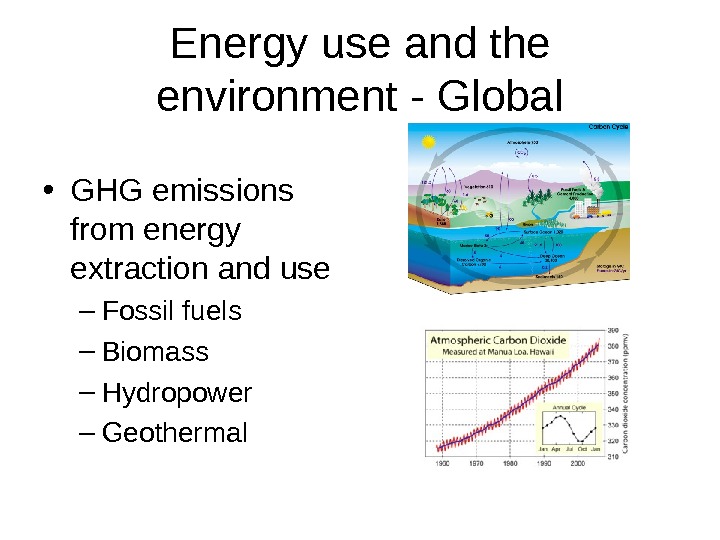
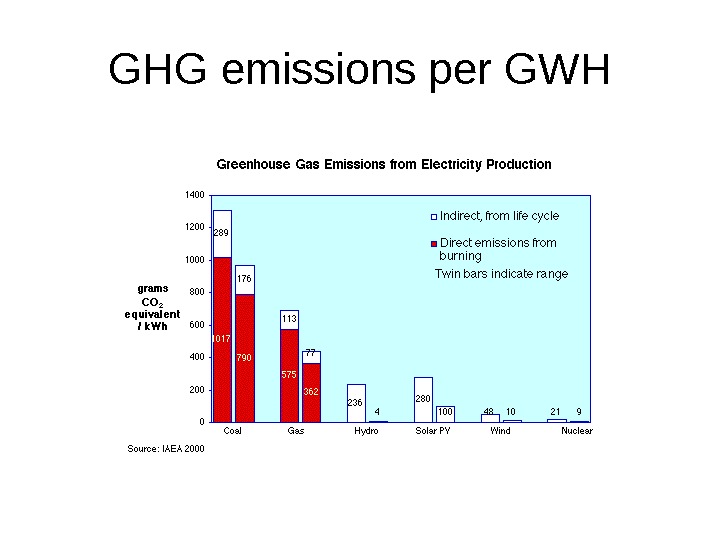
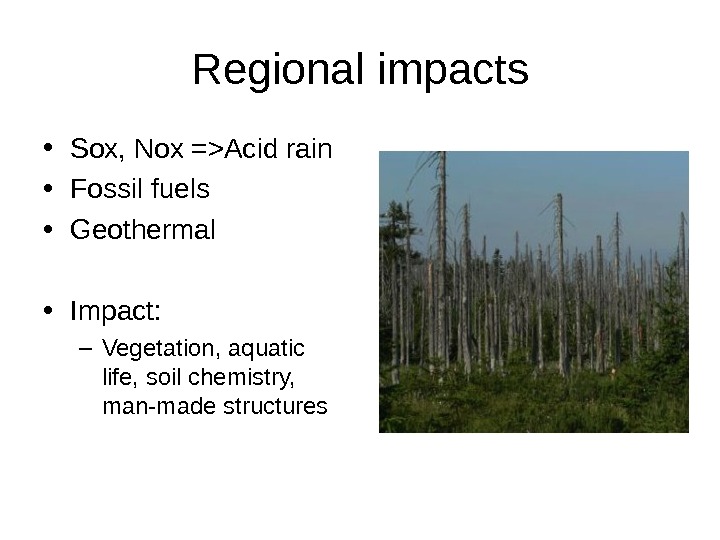
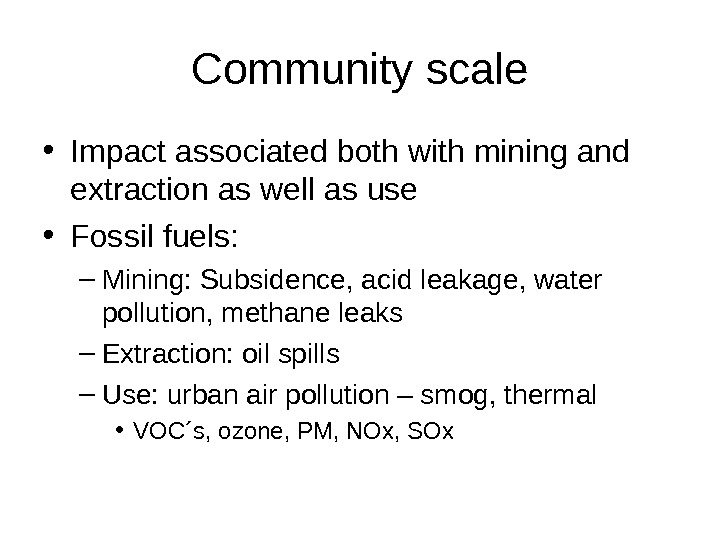
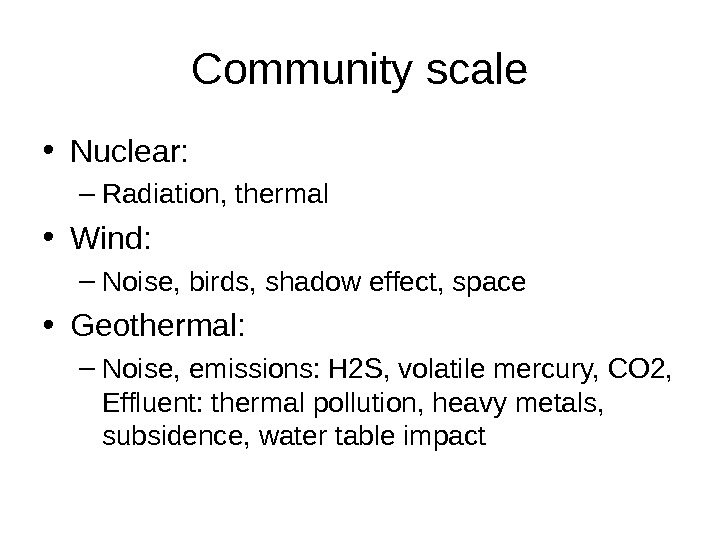
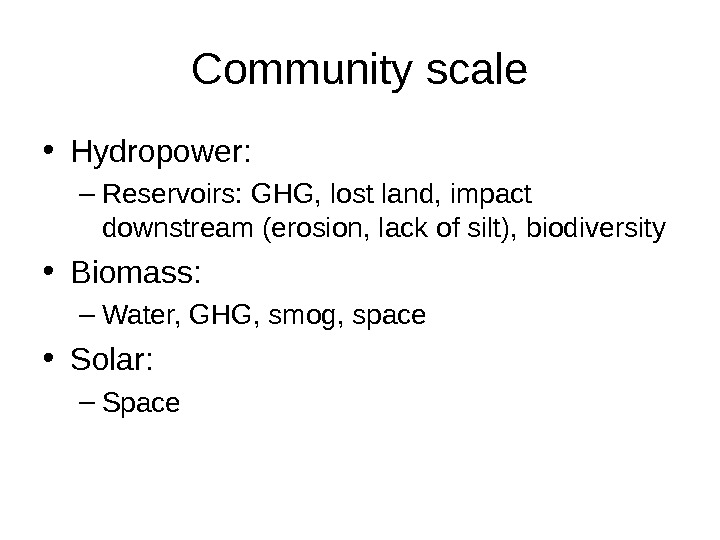
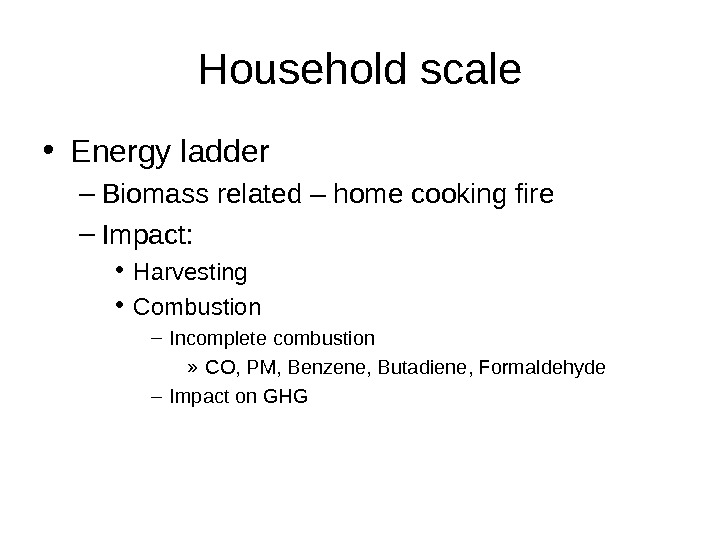


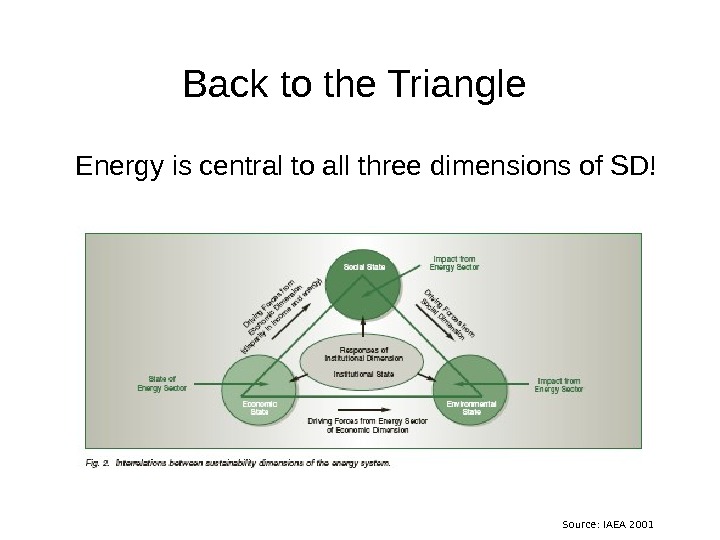
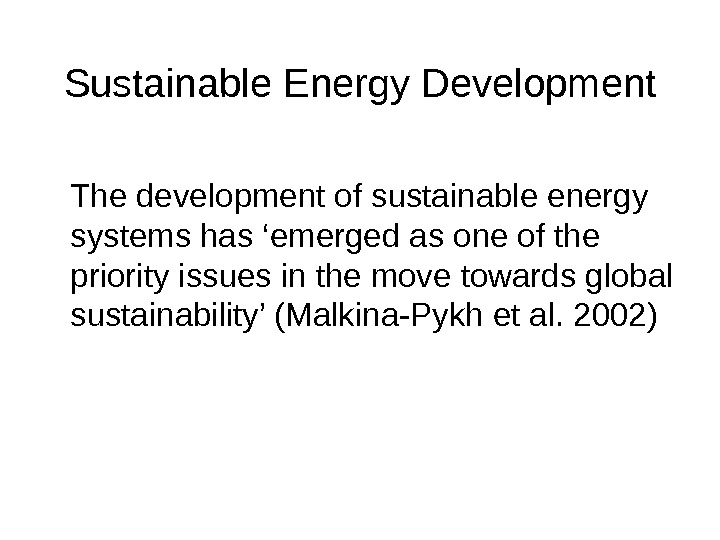
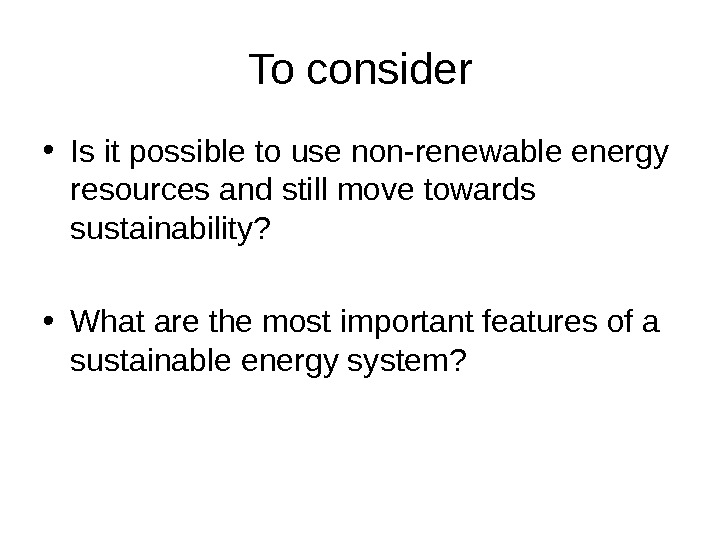
sustainable_development_l1.ppt
- Размер: 1.5 Mегабайта
- Количество слайдов: 66
Описание презентации ENERGY AND THE CHALLENGE OF SUSTAINABILITYBrynhildur Davidsdottir University по слайдам
 ENERGY AND THE CHALLENGE OF SUSTAINABILITYBrynhildur Davidsdottir University of Iceland
ENERGY AND THE CHALLENGE OF SUSTAINABILITYBrynhildur Davidsdottir University of Iceland
 Sustainable Development and Energy Sustainable Development (SD) Definition Different world views Concepts History Why Energy and SD?
Sustainable Development and Energy Sustainable Development (SD) Definition Different world views Concepts History Why Energy and SD?
 Sustainable Development “ Sustainable development is development that meets the needs of the present without compromising the ability of future generations to meet their own needs» Brundtland Commission “Our common future”
Sustainable Development “ Sustainable development is development that meets the needs of the present without compromising the ability of future generations to meet their own needs» Brundtland Commission “Our common future”
 Different world views — The Cowboy Economy • Circular flow between firms and consumers • Seemingly perpetual – sustainable? • Success measured by the amount of stuff moving through • Reckless, romantic, not realistic
Different world views — The Cowboy Economy • Circular flow between firms and consumers • Seemingly perpetual – sustainable? • Success measured by the amount of stuff moving through • Reckless, romantic, not realistic
 Different world views — The Spaceship Economy • Expanding system boundaries • Limited reservoir of materials on earth • Economy uses inputs from the environment and emits waste • Must limit throughput • Limits to growth? – Applies to energy? How?
Different world views — The Spaceship Economy • Expanding system boundaries • Limited reservoir of materials on earth • Economy uses inputs from the environment and emits waste • Must limit throughput • Limits to growth? – Applies to energy? How?
 Planetary boundaries Providing a safe operating space for humanity! Rockstrom et al. 2009. Science
Planetary boundaries Providing a safe operating space for humanity! Rockstrom et al. 2009. Science
 • Group of researchers defined nine planetary boundaries – in which humanity could operate safely. • Interactions between them • Quantify seven (excl: chemical pollution, aerosol loading): – Climate change – Ocean acidification – Stratospheric ozone – Biogeochemical nitrogen and phosphorous – Global freshwater use – Land system change – Loss of biodiversity
• Group of researchers defined nine planetary boundaries – in which humanity could operate safely. • Interactions between them • Quantify seven (excl: chemical pollution, aerosol loading): – Climate change – Ocean acidification – Stratospheric ozone – Biogeochemical nitrogen and phosphorous – Global freshwater use – Land system change – Loss of biodiversity
 350 ppm >80% preind. Argonite conc. <5% reduction from preind. Levels (290 DU) <25% total natural N 2 fixation <4000 km 3/yr<10 E/MS/Y <15% of global Ice free surface to cropland
350 ppm >80% preind. Argonite conc. <5% reduction from preind. Levels (290 DU) <25% total natural N 2 fixation <4000 km 3/yr<10 E/MS/Y <15% of global Ice free surface to cropland
 The real world — only one earth! There is no Planet
The real world — only one earth! There is no Planet
 Sustainable Development “ Sustainable development is development that meets the needs of the present without compromising the ability of future generations to meet their own needs» Brundtland Commission “Our common future”
Sustainable Development “ Sustainable development is development that meets the needs of the present without compromising the ability of future generations to meet their own needs» Brundtland Commission “Our common future”
 Three Dimensions of SD Social Economic Environmental. The challenge: Balancing economic development with social and environmental objectives Agenda 21 — and Local Agenda
Three Dimensions of SD Social Economic Environmental. The challenge: Balancing economic development with social and environmental objectives Agenda 21 — and Local Agenda
 Different World Views
Different World Views
 Different World Views
Different World Views
 The three dimensions • Mohan Munasinghe – three dimensions • Economic: Maximize income while maintaining a constant or increasing stock of capital • Ecological: Maintaining resilience and robustness of biological and physical systems • Socio-cultural: Maintaining the stability of social and cultural systems • Triple bottom line
The three dimensions • Mohan Munasinghe – three dimensions • Economic: Maximize income while maintaining a constant or increasing stock of capital • Ecological: Maintaining resilience and robustness of biological and physical systems • Socio-cultural: Maintaining the stability of social and cultural systems • Triple bottom line
 Economic dimension Jonathan Harris Tufts U • An economically sustainable system must be able to produce goods and services on a continuing basis, to maintain manageable size of government and external debt and to avoid sectoral imbalances (maintain diversity).
Economic dimension Jonathan Harris Tufts U • An economically sustainable system must be able to produce goods and services on a continuing basis, to maintain manageable size of government and external debt and to avoid sectoral imbalances (maintain diversity).
 Environmental dimension Jonathan Harris Tufts U • A stable resource base, do not overwhelm the waste assimilative ability of the environment nor the regenerative services of the environment, deplete non-renewables only to the extent we invest in renewable substitutes.
Environmental dimension Jonathan Harris Tufts U • A stable resource base, do not overwhelm the waste assimilative ability of the environment nor the regenerative services of the environment, deplete non-renewables only to the extent we invest in renewable substitutes.
 Social Dimension Jonathan Harris Tufts U • Achieve distributional equity, adequate provision of social services including health and education, gender equity and political accountability and participation
Social Dimension Jonathan Harris Tufts U • Achieve distributional equity, adequate provision of social services including health and education, gender equity and political accountability and participation
 To keep in mind • Difficult to assess what exactly is sustainable – or when exactly we are sustainable • Can identify when we are moving towards or away from sustainability • Can move away from SD in one dimension towards SD in others • End of the rainbow analogy
To keep in mind • Difficult to assess what exactly is sustainable – or when exactly we are sustainable • Can identify when we are moving towards or away from sustainability • Can move away from SD in one dimension towards SD in others • End of the rainbow analogy
 Weak vs Strong sustainability • Weak sustainability; man made and natural capital substitutable. Sum must be non-declining. Positive movement overall – Implications? Tradeoffs allowed • Strong sustainability; man made and natural capital with limited substitutability, each stock must be non-declining separately. Positive movement in all D. – Implications? No tradeoffs
Weak vs Strong sustainability • Weak sustainability; man made and natural capital substitutable. Sum must be non-declining. Positive movement overall – Implications? Tradeoffs allowed • Strong sustainability; man made and natural capital with limited substitutability, each stock must be non-declining separately. Positive movement in all D. – Implications? No tradeoffs
 Different World Views
Different World Views
 Natural Capital – Energy Resources • Two types: – Renewable or active capital • Providing extractable renewable resources, and provide services without being extracted (ex. Waste assimilation). – Nonrenewable or passive capital • Inactive (passive). Provide no services until extracted. Ex. Fossil fuels – Perpetual resources — only provide flow services and have no stock counterpart
Natural Capital – Energy Resources • Two types: – Renewable or active capital • Providing extractable renewable resources, and provide services without being extracted (ex. Waste assimilation). – Nonrenewable or passive capital • Inactive (passive). Provide no services until extracted. Ex. Fossil fuels – Perpetual resources — only provide flow services and have no stock counterpart
 The SD principle – meant to deliver 1. Economic growth and equity; not leaving any region behind 2. Conserving natural resources and the environment; for us and future generations 3. Social development; Ensure rich fabric of social and cultural diversity, ensure rights of workers, empowerment and at the same time ensure jobs, education, food, health care, energy etc.
The SD principle – meant to deliver 1. Economic growth and equity; not leaving any region behind 2. Conserving natural resources and the environment; for us and future generations 3. Social development; Ensure rich fabric of social and cultural diversity, ensure rights of workers, empowerment and at the same time ensure jobs, education, food, health care, energy etc.
 The Issue • How to balance economic development with social and environmental objectives? — How to plan for SD? What is the role of energy? • Always needs to be context driven – Location (geography, state of development), resource endowments, size of population, structure of economy, governance etc.
The Issue • How to balance economic development with social and environmental objectives? — How to plan for SD? What is the role of energy? • Always needs to be context driven – Location (geography, state of development), resource endowments, size of population, structure of economy, governance etc.
 History of SD 1. The Beginning • 1962; “Silent spring” – Rachel Carson • 1967 Environment defense fund pursues legal options to protect environment • 1968 Paul Ehrlich “The population bomb” • 1968 Club of Rome
History of SD 1. The Beginning • 1962; “Silent spring” – Rachel Carson • 1967 Environment defense fund pursues legal options to protect environment • 1968 Paul Ehrlich “The population bomb” • 1968 Club of Rome
 History 1. The Beginning • UN GA authorizes the Human Environment conference in Stockholm • 1969 NEPA formed – EPA established • 1970 — 71 Natural Resources Defense Council formed, earth day, Greenpeace established • 1972 Club of Rome report published “Limits to Growth”
History 1. The Beginning • UN GA authorizes the Human Environment conference in Stockholm • 1969 NEPA formed – EPA established • 1970 — 71 Natural Resources Defense Council formed, earth day, Greenpeace established • 1972 Club of Rome report published “Limits to Growth”
 First Conference – first milestone • 1972 Stockholm, United Nations Conference on Human Environment – First international recognition of environmental problems and the link between human behavior and environmental issues – Focus on environment vs development – Concept Sustainable development argued as the solution to this dilemma – Led to creation of UNEP
First Conference – first milestone • 1972 Stockholm, United Nations Conference on Human Environment – First international recognition of environmental problems and the link between human behavior and environmental issues – Focus on environment vs development – Concept Sustainable development argued as the solution to this dilemma – Led to creation of UNEP
 First Conference 1972 • Conference themes – the interdependence of human beings and the natural environment; – the links between economic and social development and environmental protection; and – the need for a global vision and common principles.
First Conference 1972 • Conference themes – the interdependence of human beings and the natural environment; – the links between economic and social development and environmental protection; and – the need for a global vision and common principles.
 The Road to Rio 2. Towards Rio • 1972 Oil Crisis – Evidence mounts for increasing scarcity • 1980 World Conservation strategy released (IUCN) – Towards Sustainable development • Poverty, population pressure, inequity, trade • 1983 World Commission on Environment and Development formed – Gro Harlem Brundtland (chair)
The Road to Rio 2. Towards Rio • 1972 Oil Crisis – Evidence mounts for increasing scarcity • 1980 World Conservation strategy released (IUCN) – Towards Sustainable development • Poverty, population pressure, inequity, trade • 1983 World Commission on Environment and Development formed – Gro Harlem Brundtland (chair)
 World Commission on Environment and Development Mandate to work for 3 years to: • To propose long-term environmental strategies for achieving sustainable development to the year 2000 and beyond; • To recommend ways in which concern for the environment may be translated into greater co-operation among developing countries and between countries at different stages of economic and social development • To consider ways and means by which the international community can deal more effectively with environmental concerns, in the light of the other recommendations in its report; • To help to define shared perceptions of long-term environmental issues
World Commission on Environment and Development Mandate to work for 3 years to: • To propose long-term environmental strategies for achieving sustainable development to the year 2000 and beyond; • To recommend ways in which concern for the environment may be translated into greater co-operation among developing countries and between countries at different stages of economic and social development • To consider ways and means by which the international community can deal more effectively with environmental concerns, in the light of the other recommendations in its report; • To help to define shared perceptions of long-term environmental issues
 2. The Road to Rio • 1984 Worldwatch publishes the first State of the World Report • 1985 Antarctic ozone hole confirmed • 1985 Villach Austria, climate change predicted • 1986 IUCN Conference on Environment and Development • 1987 Our Common Future Published – Prompts the Earth Summit in Rio
2. The Road to Rio • 1984 Worldwatch publishes the first State of the World Report • 1985 Antarctic ozone hole confirmed • 1985 Villach Austria, climate change predicted • 1986 IUCN Conference on Environment and Development • 1987 Our Common Future Published – Prompts the Earth Summit in Rio
 Our Common Future – second Milestone • Argue for a new era of economic growth, growth that is forceful, and at the same time environmentally and socially sustainable. • Three dimensions of SD – Environment – Economics – Social • Not clear on specifics
Our Common Future – second Milestone • Argue for a new era of economic growth, growth that is forceful, and at the same time environmentally and socially sustainable. • Three dimensions of SD – Environment – Economics – Social • Not clear on specifics
 The Earth Summit – third milestone • 1992, The United Nations Conference on Environment and Development – Rio 1992 – 178 nations – 2400 NGO´s – 17000 participants Unparalleled emphasis and interest in the environment – and how to achieve balanced solutions
The Earth Summit – third milestone • 1992, The United Nations Conference on Environment and Development – Rio 1992 – 178 nations – 2400 NGO´s – 17000 participants Unparalleled emphasis and interest in the environment – and how to achieve balanced solutions
 The Earth Summit Outcomes • Rio Declaration on Environment and Development • Agenda 21 • Convention on Biological Diversity • Forest Principles • Framework Convention on Climate Change • Establishing the CSD – began operating in
The Earth Summit Outcomes • Rio Declaration on Environment and Development • Agenda 21 • Convention on Biological Diversity • Forest Principles • Framework Convention on Climate Change • Establishing the CSD – began operating in
 Rio Declaration – Key highlights • Humans at the center • States have the right to use their own resources as they see fit • Must integrate the environment into development plans • Should facilitate increased public participation • States should enact environmental legislation and should cooperate where needed • Should actively discourage or prevent relocation of activities or substances harmful to the environment or human health • Apply the Precautionary approach • Internalize environmental costs and use economic instruments • EIA should be undertaken for proposed activities • Peace, development and environmental protection are interdependent and indivisible
Rio Declaration – Key highlights • Humans at the center • States have the right to use their own resources as they see fit • Must integrate the environment into development plans • Should facilitate increased public participation • States should enact environmental legislation and should cooperate where needed • Should actively discourage or prevent relocation of activities or substances harmful to the environment or human health • Apply the Precautionary approach • Internalize environmental costs and use economic instruments • EIA should be undertaken for proposed activities • Peace, development and environmental protection are interdependent and indivisible
 Agenda 21 • A comprehensive blueprint of action to be taken globally, nationally and locally by organizations of the UN, governments, and major groups in every area in which humans influence the environment. • The task is to balance economic development with social and environmental objectives • 21? • 40 Chapters, 4 sections, 100 programme areas • Non-binding
Agenda 21 • A comprehensive blueprint of action to be taken globally, nationally and locally by organizations of the UN, governments, and major groups in every area in which humans influence the environment. • The task is to balance economic development with social and environmental objectives • 21? • 40 Chapters, 4 sections, 100 programme areas • Non-binding
 Local Agenda 21 • Agenda 21 involves action at international, regional and local levels. • Some national and state governments have legislated or advised that local authorities take steps to implement the plan locally (Chapter 28) • Such programmes are often known as ‘Local Agenda 21’ or ‘LA 21’.
Local Agenda 21 • Agenda 21 involves action at international, regional and local levels. • Some national and state governments have legislated or advised that local authorities take steps to implement the plan locally (Chapter 28) • Such programmes are often known as ‘Local Agenda 21’ or ‘LA 21’.
 History – After Rio 3. After Rio • 1993 First meeting of the CSD • 1995 World Summit for Social development • 1996 The Summit of the Americas on SD • 1997 UN GA review of the Earth Summit progress • 2000 UN Millennium Summit – declaration of the Millennium Goals • 2001 EU sustainable development strategy • 2002 Rio plus 10 – Johannesburg • 2012 Rio plus 20 — Rio
History – After Rio 3. After Rio • 1993 First meeting of the CSD • 1995 World Summit for Social development • 1996 The Summit of the Americas on SD • 1997 UN GA review of the Earth Summit progress • 2000 UN Millennium Summit – declaration of the Millennium Goals • 2001 EU sustainable development strategy • 2002 Rio plus 10 – Johannesburg • 2012 Rio plus 20 — Rio
 Millennium Declaration • http: //www. un. org/millenniumgoals/ • The eight Millennium Development Goals (MDGs) form a blueprint agreed to by all the world ´s countries and all the world ´s leading development institutions. • The goals….
Millennium Declaration • http: //www. un. org/millenniumgoals/ • The eight Millennium Development Goals (MDGs) form a blueprint agreed to by all the world ´s countries and all the world ´s leading development institutions. • The goals….
 The Millennium Goals 1. Eradicate extreme poverty and hunger 2. Achieve universal primary education 3. Achieve gender equality and empower women 4. Reduce child mortality 5. Improve maternal health 6. Combat HIV/AIDS, malaria 7. Ensure environmental sustainability • Integrate the principles of sustainable development into country policies and programs • reverse loss of environmental resources • Reduce by half the proportion of people without sustainable access to safe drinking water 8. Develop a global partnership for sustainability
The Millennium Goals 1. Eradicate extreme poverty and hunger 2. Achieve universal primary education 3. Achieve gender equality and empower women 4. Reduce child mortality 5. Improve maternal health 6. Combat HIV/AIDS, malaria 7. Ensure environmental sustainability • Integrate the principles of sustainable development into country policies and programs • reverse loss of environmental resources • Reduce by half the proportion of people without sustainable access to safe drinking water 8. Develop a global partnership for sustainability
 Rio plus 10. Johannesburg; 4 rth milestone World Summit on Sustainable Development (WSSD) 2002 Johannesburg • Established to assess progress on implementation of the results of the Rio summit – in particular Agenda 21. • The Johannesburg Plan of Implementation, agreed at the World Summit on Sustainable Development (Earth Summit 2002) affirmed UN commitment to ‘full implementation’ of Agenda 21, alongside achievement of the Millennium Development Goals and other international agreements. • Non-binding • No new conventions
Rio plus 10. Johannesburg; 4 rth milestone World Summit on Sustainable Development (WSSD) 2002 Johannesburg • Established to assess progress on implementation of the results of the Rio summit – in particular Agenda 21. • The Johannesburg Plan of Implementation, agreed at the World Summit on Sustainable Development (Earth Summit 2002) affirmed UN commitment to ‘full implementation’ of Agenda 21, alongside achievement of the Millennium Development Goals and other international agreements. • Non-binding • No new conventions
 Johannesburg • Focus: – Social pillar of SD – Fight poverty • Mutually enhancing poverty and environmental degradation is one of the factors preventing SD – Address equitable access to resources – Debt relief programs – Increasing O
Johannesburg • Focus: – Social pillar of SD – Fight poverty • Mutually enhancing poverty and environmental degradation is one of the factors preventing SD – Address equitable access to resources – Debt relief programs – Increasing O
 The three dimensions • The three conferences defined the three dimensions – Stockholm (Environment) – Rio (Economics) – Johannesburg (Social)
The three dimensions • The three conferences defined the three dimensions – Stockholm (Environment) – Rio (Economics) – Johannesburg (Social)
 Energy and S
Energy and S
 Focus on Energy — Why? Energy plays a key role in all three dimensions of Sustainable Development: A principal motor of macroeconomic growth Energy “causing” GDP and vice versa A source of environmental stress (all types – but in different quantities!) Climate change, acid rain, smog, subsidence etc. A prerequisite for meeting basic human needs HDI closely linked to access to high quality energy => A vital component of S
Focus on Energy — Why? Energy plays a key role in all three dimensions of Sustainable Development: A principal motor of macroeconomic growth Energy “causing” GDP and vice versa A source of environmental stress (all types – but in different quantities!) Climate change, acid rain, smog, subsidence etc. A prerequisite for meeting basic human needs HDI closely linked to access to high quality energy => A vital component of S
 Energy and Economic Prosperity • Require energy for everything! Laws of thermodynamics • Energy fuels the economy — access to cheap fossil energy fuels economic growth – cycle turns faster • Economic growth equals throughput through the economy (GDP) – bi-causal relationships Source, Common and Stagl
Energy and Economic Prosperity • Require energy for everything! Laws of thermodynamics • Energy fuels the economy — access to cheap fossil energy fuels economic growth – cycle turns faster • Economic growth equals throughput through the economy (GDP) – bi-causal relationships Source, Common and Stagl
 Energy as a limiting factor – Expected increase!
Energy as a limiting factor – Expected increase!
 Energy Use by Type – an issue? World O
Energy Use by Type – an issue? World O
 How much is left? – A problem for economic growth and development?
How much is left? – A problem for economic growth and development?
 Energy Use and Human Welfare Social Dimension As high quality energy use increases, human welfare (HDI) increases – Literacy – Schooling – Infant mortality – Income per capita Source: WEA Update
Energy Use and Human Welfare Social Dimension As high quality energy use increases, human welfare (HDI) increases – Literacy – Schooling – Infant mortality – Income per capita Source: WEA Update
 Sub-indicators for HDI
Sub-indicators for HDI
 Energy and Poverty • Poverty: Lack of access to basic human needs such as food, shelter, fuel, clothing, safe water, sanitation etc. • Inability to achieve a minimum standard of what is needed for material well-being • Energy services crucial input to primary development challenges • Supports provisioning of basic human needs • Issues: Lack of access, lack of availability
Energy and Poverty • Poverty: Lack of access to basic human needs such as food, shelter, fuel, clothing, safe water, sanitation etc. • Inability to achieve a minimum standard of what is needed for material well-being • Energy services crucial input to primary development challenges • Supports provisioning of basic human needs • Issues: Lack of access, lack of availability
 Energy ladder Source: WEA Update
Energy ladder Source: WEA Update
 Energy and women • Four factors: – Resource base • Biomass • Must be collected • Health and safety impacts • Education – Household work • Primarily women – health impacts – Energy/climate policy • Energy resources not available to all • CDM projects clustered – Position of women • Impact not a sufficient concern
Energy and women • Four factors: – Resource base • Biomass • Must be collected • Health and safety impacts • Education – Household work • Primarily women – health impacts – Energy/climate policy • Energy resources not available to all • CDM projects clustered – Position of women • Impact not a sufficient concern
 Energy use and the environment Impact from extraction and use Impact: – Global – Regional – Local: Community – Household Source, Common and Stagl
Energy use and the environment Impact from extraction and use Impact: – Global – Regional – Local: Community – Household Source, Common and Stagl
 Energy use and the environment — Global • GHG emissions from energy extraction and use – Fossil fuels – Biomass – Hydropower – Geothermal
Energy use and the environment — Global • GHG emissions from energy extraction and use – Fossil fuels – Biomass – Hydropower – Geothermal
 GHG emissions per GWH
GHG emissions per GWH
 Regional impacts • Sox, Nox =>Acid rain • Fossil fuels • Geothermal • Impact: – Vegetation, aquatic life, soil chemistry, man-made structures
Regional impacts • Sox, Nox =>Acid rain • Fossil fuels • Geothermal • Impact: – Vegetation, aquatic life, soil chemistry, man-made structures
 Community scale • Impact associated both with mining and extraction as well as use • Fossil fuels: – Mining: Subsidence, acid leakage, water pollution, methane leaks – Extraction: oil spills – Use: urban air pollution – smog, thermal • VOC´s, ozone, PM, NOx, SOx
Community scale • Impact associated both with mining and extraction as well as use • Fossil fuels: – Mining: Subsidence, acid leakage, water pollution, methane leaks – Extraction: oil spills – Use: urban air pollution – smog, thermal • VOC´s, ozone, PM, NOx, SOx
 Community scale • Nuclear: – Radiation, thermal • Wind: – Noise, birds, shadow effect, space • Geothermal: – Noise, emissions: H 2 S, volatile mercury, CO 2, Effluent: thermal pollution, heavy metals, subsidence, water table impact
Community scale • Nuclear: – Radiation, thermal • Wind: – Noise, birds, shadow effect, space • Geothermal: – Noise, emissions: H 2 S, volatile mercury, CO 2, Effluent: thermal pollution, heavy metals, subsidence, water table impact
 Community scale • Hydropower: – Reservoirs: GHG, lost land, impact downstream (erosion, lack of silt), biodiversity • Biomass: – Water, GHG, smog, space • Solar: – Space
Community scale • Hydropower: – Reservoirs: GHG, lost land, impact downstream (erosion, lack of silt), biodiversity • Biomass: – Water, GHG, smog, space • Solar: – Space
 Household scale • Energy ladder – Biomass related – home cooking fire – Impact: • Harvesting • Combustion – Incomplete combustion » CO, PM, Benzene, Butadiene, Formaldehyde – Impact on GHG
Household scale • Energy ladder – Biomass related – home cooking fire – Impact: • Harvesting • Combustion – Incomplete combustion » CO, PM, Benzene, Butadiene, Formaldehyde – Impact on GHG
 Fossil fuels versus alternatives • Differences between energy types? • Anything important with respect to the environmental impact?
Fossil fuels versus alternatives • Differences between energy types? • Anything important with respect to the environmental impact?
 Focus on Energy — Why? Energy plays a key role in all three dimensions of Sustainable Development: A principal motor of macroeconomic growth Energy “causing” GDP and vice versa A source of environmental stress (all types – but in different quantities!) Climate change, acid rain, smog, subsidence etc. A prerequisite for meeting basic human needs HDI closely linked to access to high quality energy => A vital component of S
Focus on Energy — Why? Energy plays a key role in all three dimensions of Sustainable Development: A principal motor of macroeconomic growth Energy “causing” GDP and vice versa A source of environmental stress (all types – but in different quantities!) Climate change, acid rain, smog, subsidence etc. A prerequisite for meeting basic human needs HDI closely linked to access to high quality energy => A vital component of S
 Back to the Triangle Energy is central to all three dimensions of SD! Source: I
Back to the Triangle Energy is central to all three dimensions of SD! Source: I
 Sustainable Energy Development The development of sustainable energy systems has ‘emerged as one of the priority issues in the move towards global sustainability’ (Malkina-Pykh et al. 2002)
Sustainable Energy Development The development of sustainable energy systems has ‘emerged as one of the priority issues in the move towards global sustainability’ (Malkina-Pykh et al. 2002)
 To consider • Is it possible to use non-renewable energy resources and still move towards sustainability? • What are the most important features of a sustainable energy system?
To consider • Is it possible to use non-renewable energy resources and still move towards sustainability? • What are the most important features of a sustainable energy system?
